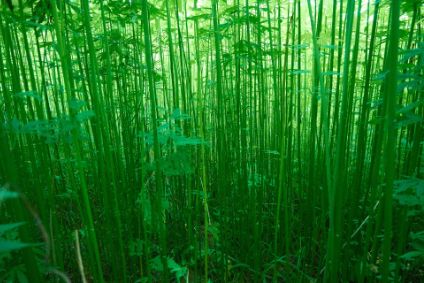
Pakistan’s vertical denim manufacturer AGI Denim has agreed the first global production partnership with Panda Biotech to use US-grown industrial hemp that can be tracked and traced back to its American farmers.
The hemp is processed and cottonised at Panda Biotech’s state-of-the-art facility in the United States, the largest in the western hemisphere and believed to be the largest in the world.
The collaboration allows both companies and their brand partners to identify, track and trace the hemp fibre as it moves along the supply chain from raw to finished goods. They also expect to learn more about how sustainable, hemp-based fibres and materials can be used to create high-quality denim.
“What we found most compelling about this ground-breaking, female-led company is the traceability angle that goes right back to the American farmer,” says Hasan Javed, executive director at AGI Denim.
“Given hemp’s incredibly positive impact on the environment, we strongly believe that it is the future and the way forward. We’re excited to see what innovative new materials will come from this collaboration.”
AGI has already made great strides in developing innovative alternatives to traditional denim manufacturing and processing methods, including a Gold Level, Cradle-to-Cradle Certification for its latest hemp-based fabric material, Hemp X.
With the company’s exclusive one-year deal with Panda for the Pakistan denim industry, AGI Denim expects to further scale its use of sustainable raw materials at its new facilities.
Blended with cotton and other fibres, industrial hemp offers a host of environmental benefits, including the ability to absorb more CO2 per acre than any forest or commercial crop. It requires a fraction of the water needed by most major crops, can grow in a wide variety of climates and soil types, is naturally resistant to most pests, and grows very tightly spaced – allowing it to “outcompete” most weeds.
Panda Biotech is currently developing large-scale, industrial Hemp Gin facilities, the first of which is located in Wichita Falls, Texas, and will be operational in March 2022.
The “cottonisation” process removes the lignin that binds hemp fibres together in bundles and “opens” them for further refinement. Once “cottonised,” the hemp fibre can be blended with other natural or man-made fibres – such as cotton, silk, wool and polyester – and spun into yarns that will be knit or woven into fabric.



